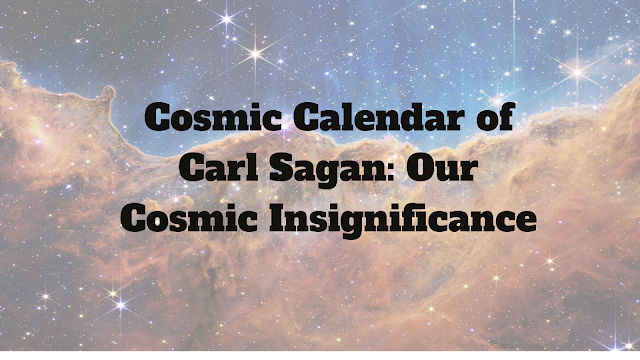Introduction In many parts of the world, discipline is often associated with pressure, control, and constant self-motivation. It is treated like a battle—against laziness, distraction, or lack of willpower. The common belief is that discipline requires pushing harder, forcing habits, and constantly correcting oneself. Japanese culture presents a very different perspective. Here, discipline is not experienced as punishment or pressure. It is expressed as respect—for oneself, for others, and for the work being done. It is not loud or rigid. Instead, it is calm, consistent, and deeply integrated into daily life. What makes Japanese discipline powerful is that it does not rely on motivation. It relies on values. These values quietly shape behavior, habits, and mindset over time. Below are five timeless Japanese principles that redefine discipline and show how extraordinary character is built without force. What Japanese Culture Taught Me About Discipline 1. WA (和) — Harmon...
Introduction
In the vast expanse of the cosmos, where time and space dance in an intricate ballet, our existence is but a fleeting moment on the grand stage of the universe. Carl Sagan, a renowned astrophysicist and science communicator, eloquently captured this cosmic perspective through his metaphorical concept known as the Cosmic Calendar. As we explore this celestial timeline, we are confronted with the humbling reality of our cosmic insignificance.The Cosmic Calendar
The Cosmic Calendar is a brilliant thought experiment that compresses the 13.8 billion-year history of the universe into a single calendar year. Each month represents roughly 1.2 billion years, and each day signifies approximately 40 million years. With this perspective, we embark on a journey through time, gaining insight into the relative brevity of human existence in the vast tapestry of cosmic history.January 1st: The Big Bang
Our cosmic calendar begins with the dramatic explosion of energy and matter—the Big Bang—marking the birth of the universe. In the metaphorical blink of an eye, galaxies, stars, and planets formed, setting the stage for the cosmic drama that would unfold over eons.
March 15th: Formation of the Milky Way
As we fast forward to March 15th on the Cosmic Calendar, the Milky Way, our home galaxy, takes shape. Within this galactic cradle, the elements necessary for life are forged in the fiery furnaces of stars.
September 4th: The Birth of the Solar System
On September 4th, our solar system emerges from the cosmic tapestry. The Sun ignites, and planets, including Earth, coalesce from the remnants of a stellar explosion, providing a celestial canvas for the intricate dance of life.
December 31st: The Dawn of Humanity
In the final moments of the Cosmic Calendar, December 31st unfolds. The first humans appear mere seconds before midnight, marking the culmination of an awe-inspiring cosmic journey. It's at this point that our self-awareness and capacity for exploration and discovery come into play.
Our Cosmic Insignificance
As we ponder the significance of our existence within the vast cosmic timeline, a profound sense of insignificance washes over us. In the vastness of the cosmos, our collective history is but a whisper, a fleeting moment on the cosmic calendar. This realization, however, is not meant to diminish our achievements or aspirations but to humble us and instill a deep appreciation for the privilege of conscious existence.The Pale Blue Dot:
Carl Sagan further emphasized our cosmic insignificance in his poignant reflection on the "Pale Blue Dot." Captured by the Voyager 1 spacecraft from the edge of our solar system, Earth appears as a minuscule speck in the vastness of space. Sagan's words resonate with a profound truth: "That's here. That's home. That's us."
In the grandeur of the cosmos, the disputes and conflicts that consume our daily lives seem trivial. The Cosmic Calendar and the Pale Blue Dot serve as cosmic mirrors, reflecting our shared humanity and the fragile nature of our planetary home.
As we stand on the brink of a new year, both metaphorically and cosmically, let us approach the challenges and opportunities that lie ahead with a sense of wonder and responsibility. The Cosmic Calendar teaches us that our time is but a fraction of a fleeting cosmic year, urging us to make the most of our brief moment in the spotlight.
Carl Sagan further emphasized our cosmic insignificance in his poignant reflection on the "Pale Blue Dot." Captured by the Voyager 1 spacecraft from the edge of our solar system, Earth appears as a minuscule speck in the vastness of space. Sagan's words resonate with a profound truth: "That's here. That's home. That's us."
In the grandeur of the cosmos, the disputes and conflicts that consume our daily lives seem trivial. The Cosmic Calendar and the Pale Blue Dot serve as cosmic mirrors, reflecting our shared humanity and the fragile nature of our planetary home.
Embracing Our Insignificance
Rather than succumbing to existential despair, the awareness of our cosmic insignificance invites us to embrace a perspective of cosmic humility. Recognizing our place in the vast cosmic symphony encourages us to cherish our interconnectedness and stewardship of Earth.As we stand on the brink of a new year, both metaphorically and cosmically, let us approach the challenges and opportunities that lie ahead with a sense of wonder and responsibility. The Cosmic Calendar teaches us that our time is but a fraction of a fleeting cosmic year, urging us to make the most of our brief moment in the spotlight.


Comments
Post a Comment
Please do not add any spam link in the comment box